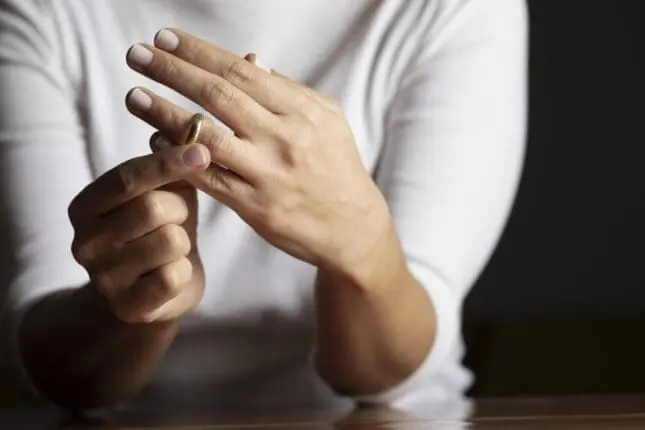Quandary: I’m a couples therapist, and I’m currently going through an emotionally wrenching separation from my partner. I’m finding it’s a strange experience to try to help my clients repair their torn relationships while I can’t seem to mend mine. Of course, I’m discussing this with my supervisor, but I wonder if anyone else has some words of wisdom.
1) Look for the Silver Lining
This Quandary is much deeper than couples therapy. In essence, it confronts us with the question of whether we therapists need to be fully mentally healthy or be totally at peace within ourselves in order to help others. At its core, this is a question of what makes someone an effective therapist.
Couples therapy teaches us that it’s not up to us therapists to keep people together. It’s up to the therapist to determine exactly what the couple wants from therapy and then enact that to the best of his or her ability. Sometimes that means helping them end their relationship in the best way possible. Sometimes it means restructuring the relationship. Sometimes it means doing nothing.
My personal journey as a couples therapist has not been easy or straightforward. By the end of graduate school, I was in a successful marriage, had two children, and found couples work quite gratifying. But about 12 years into my professional career, my marriage ended. It was very difficult for me. I asked myself the same question this therapist is asking herself. I asked a colleague what she thought, too. She replied, “David, you’re a very skilled couples therapist and you’ve worked hard to get where you are in your career. Why would you want to jump ship only because of your divorce?” I took her response to heart, and I’m glad I did. Despite the divorce, I really believe I’ve found my calling.
What makes an effective and skilled therapist? In addition to being open, honest, caring, nonjudgmental, and empathetic, we also need to be skilled at what we do. One could argue that having experienced both a marriage and a painful separation allows one to better empathize with and hone skills for clients going through their own separation. In a sense, doing good therapy means experiencing life in all its ups and downs.
Shortly after my divorce, a young couple came to me for help with their relationship. The male partner asked me why I wasn’t wearing a wedding ring. When I told him I was divorced, he seemed surprised. “I hope you can help us more than you could help yourself,” he chuckled. My greatest wish in this work, I replied, is the that I will help my clients far better than I help myself.
David Mensink, PhD, RPsych
Victoria, BC, Canada
2) You’re Not Helpful Because You’re Perfect
One of the most difficult things about being a mental health professional is the often-unspoken expectation that we need to be experts at whatever it is we’re helping someone else learn, cope with, or overcome. Unfortunately, this not only limits how much we can be of service, but also creates an unreasonable standard and contributes to reduced professional self-esteem and shame when personal struggles inevitably occur. Romantic struggles can be especially difficult to wrestle with. Our intimate relationships are often our most vulnerable, making us susceptible to personal shame and guilt on top of professional self-critique when struggles arise.
I try to remind myself that therapists aren’t helpful because they’re perfect. Rather, in addition to specialized training and skills, we have the benefit of not being in our client’s shoes, allowing us to bring a trained outsider’s perspective to their struggles. This knowledge frees us from the need to live up to a personal standard of perfection.
The fact that a couples therapist may have struggled in their romantic relationships doesn’t nullify the life and love lessons they’ve learned prior to, during, or after those struggles. In fact, much of the wisdom that benefits our clients comes from life lived and struggles overcome. There are so many factors in why people struggle, and it would be wrong to say that what works or doesn’t work for the therapist’s relationship will work or not work for the client’s. As their strengths, growth areas, and unique life baggage are unique, it’s the therapist’s job to help clients find solutions that work for them.
It’s unfortunate that working with a divorced couples therapist might give some clients pause. And yes, a divorce may result in this therapist losing some existing or potential clients. But therapists must also consider that there are many reasons why relationships end, and this isn’t reflective of a therapist’s ability to uniquely listen, understand, empower, and support their clients toward healthier personal and relational decisions. After all, your clients need you to help them understand and meet their relationship needs more effectively, not yours. However imperfect this therapist may feel, they mustn’t forget that they may remain the client’s best source of support.
Lambers Fisher, LMFT, MDiv
Stillwater, MN
3) It’s Okay to Take a Break
When I was going through a divorce, I was envious of every couple. I was particularly envious of those couples who’d seek therapy simply wanting to strengthen their relationship. I grew even more envious when I saw the affection they had for one another, and when they reached breakthroughs. If the couple had kids, it triggered the notion that my separation had hurt my daughter.
I’d compare the feeling to wanting to get pregnant, being unable to, and then seeing everyone else around you get pregnant. It hurt.
I realized early on in my separation that I was probably not doing very good couples work, because I was sitting in a seat of envy and jealousy rather than in one of objectivity, compassion, and cognitive reasoning. So, I stopped doing couples therapy for a while. And I missed it. But I knew that sitting across from couples while feeling envious made it impossible for me to offer them good care. I knew I wouldn’t be able to seem them objectively.
I resumed couples therapy roughly five years after my divorce. Fast forward almost 30 years, I love doing couples work. I actually think my divorce helped me understand couples better, and I’m confident I do better work because of it. I feel more objective, more compassionate, and certainly more understanding of the trials and tribulations that partners experience. I also know that since I’ve dealt with “my stuff,” I can do quality work with the couples sitting across from me. I can better understand their pain, their needs, and feel gratitude in helping them navigate toward a better relationship.
P.S. It also helps that 15 years after my divorce, I married the kindest, brightest, most communicative man in the world.
Susan Cohen, LICSW, LMFT, ACSW
Freeland, WA
4) Relationships Are…Complex
We are all wounded helpers who have far from perfect lives. Despite our best efforts, we all suffer personal failures and losses that can result in gut-wrenching grief. But accepting that we will occasionally come to sessions with a heavy heart doesn’t mean we can’t be effective. Sometimes I find myself doing my best work when my life feels like Schitt’s Creek. In these times, I immerse myself more deeply in my sessions, concentrating intently on my clients’ needs. My focus sharpens and my mind zeroes in more readily on finding creative interventions. The process becomes a joy and a relief as I attend to someone else and leave myself at the doorstep.
I don’t think it’s fair to judge one’s ability as a therapist based on their personal relationships. In his book After the Honeymoon, Dan Wile writes that “choosing a long-term partner is choosing a particular set of unsolvable problems that you will grapple with for the next ten, twenty, or fifty years.” Partners must navigate multiple differences and tastes, like cleanliness, time management, personal schedules, and social and financial habits. Not only that, but each partner has a history and baggage that is only partially known to the other partner. Throw in emotional stress and each partner’s expectations, and it’s undeniable how difficult it can be to keep a relationship afloat, whether it’s the client’s or your own.
To this therapist, I’d recommend taking time to nurture and soothe yourself. Attending to clients while dealing internally with your own struggle exacts an emotional toll. Set aside time after each session to refresh yourself by doing a healing activity like yoga, exercise, talking with a friend, or taking a walk. Meet with a supervisor or therapist during this time. Sometimes our pain is so overwhelming that we may need to take a time out to deal with our emotions. Find out for yourself if this is one of those times.
We can give our clients help and hope even if our own shores are rocky. We have labored through extensive training, education, and skill building to master the tools of our trade. We bring that same perseverance to our sessions, as well as our deep desire to help. Therapists offer the most potent healing in the world, often despite our own circumstances. It’s called dedication and love.
Jan Canniff, LMHC
Friday Harbor, WA
5) Learning, Not Losing
I’d like to extend a hello to this very real, very human colleague. My guess is you fell into the same trap as so many of us in the healing profession: you thought you were expected to be, at all times, in perfect health—to persevere despite colds, flus, or broken bones. To be, in a sense, immortal.
But I’ve got news for you: we are all human. Nobody’s supposed to be perfect, or immortal.
I happen to be a couples therapist who’s divorced. But rather than a detriment to my work, I consider the experience to have added to my knowledge, wisdom, and competence.
Sometimes, when appropriate, I’ll even tell separated or separating clients that I went through the same thing as them. I’m more likely to do this when one or both partners are experiencing shame, fear, or self-blame. If I confess to having also had trouble, maybe it helps them let go of some of their own self-criticism and judgment, and learn to be more gentle with themselves. From there, we can take a problem-solving approach, focusing on reducing negative energy, thoughts, feelings, and emotions.
Positioning myself as just another human being—and an equal—invites the clients to get curious. As soon as this shift occurs, I like to help partners define their expectations, hopes, and dreams for their current or future relationship. From here, they’re more likely to think about practical ways to improve themselves in relationship and reach these goals.
Welcome aboard the club of fallible and absolutely mortal therapists! As Nelson Mandela once said, “I never lose. I either win or learn.”
Salomon Nasielski, psychotherapist
Rosières, Belgium
Photo © iStock/simarik
Psychotherapy Networker
The editorial staff of Psychotherapy Networker comprises clinicians, journalists, and writers with a passion for creating a community where therapists gather and grow. Learn more on our About Us page.











